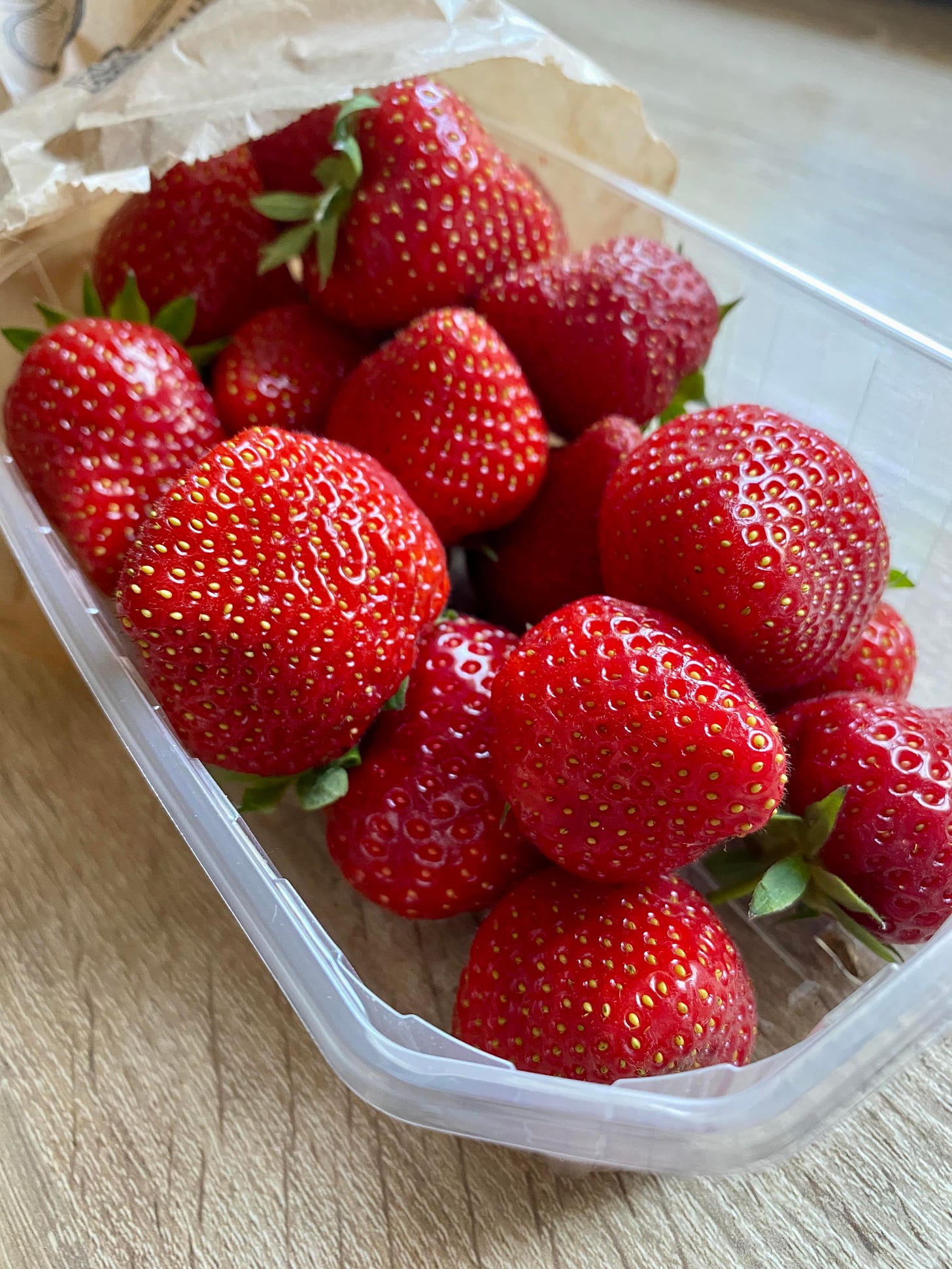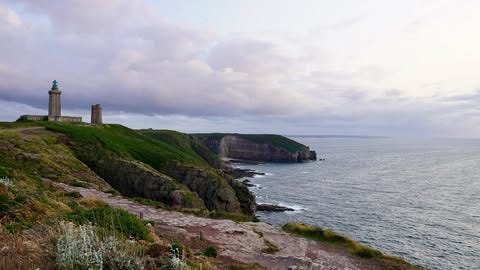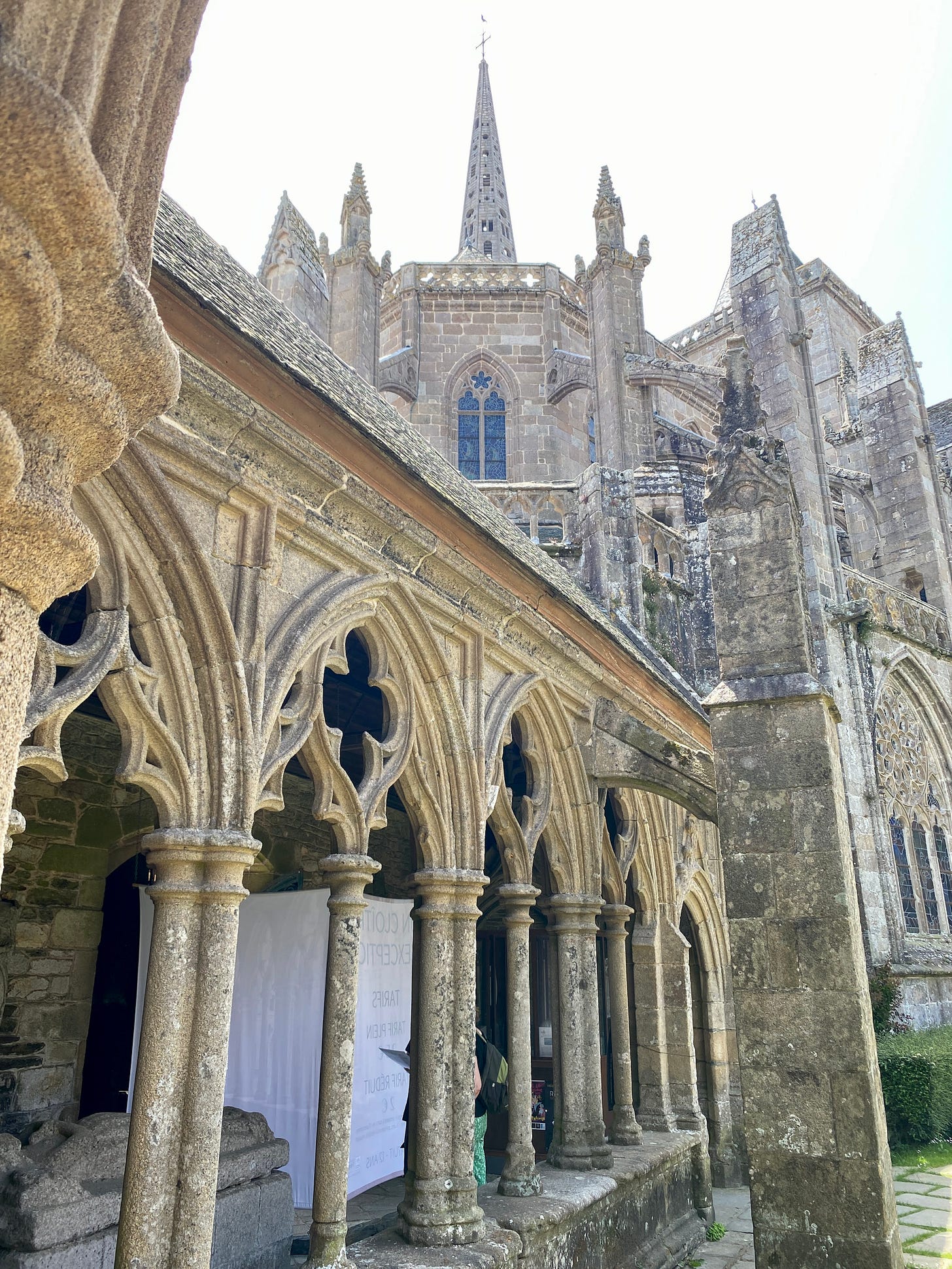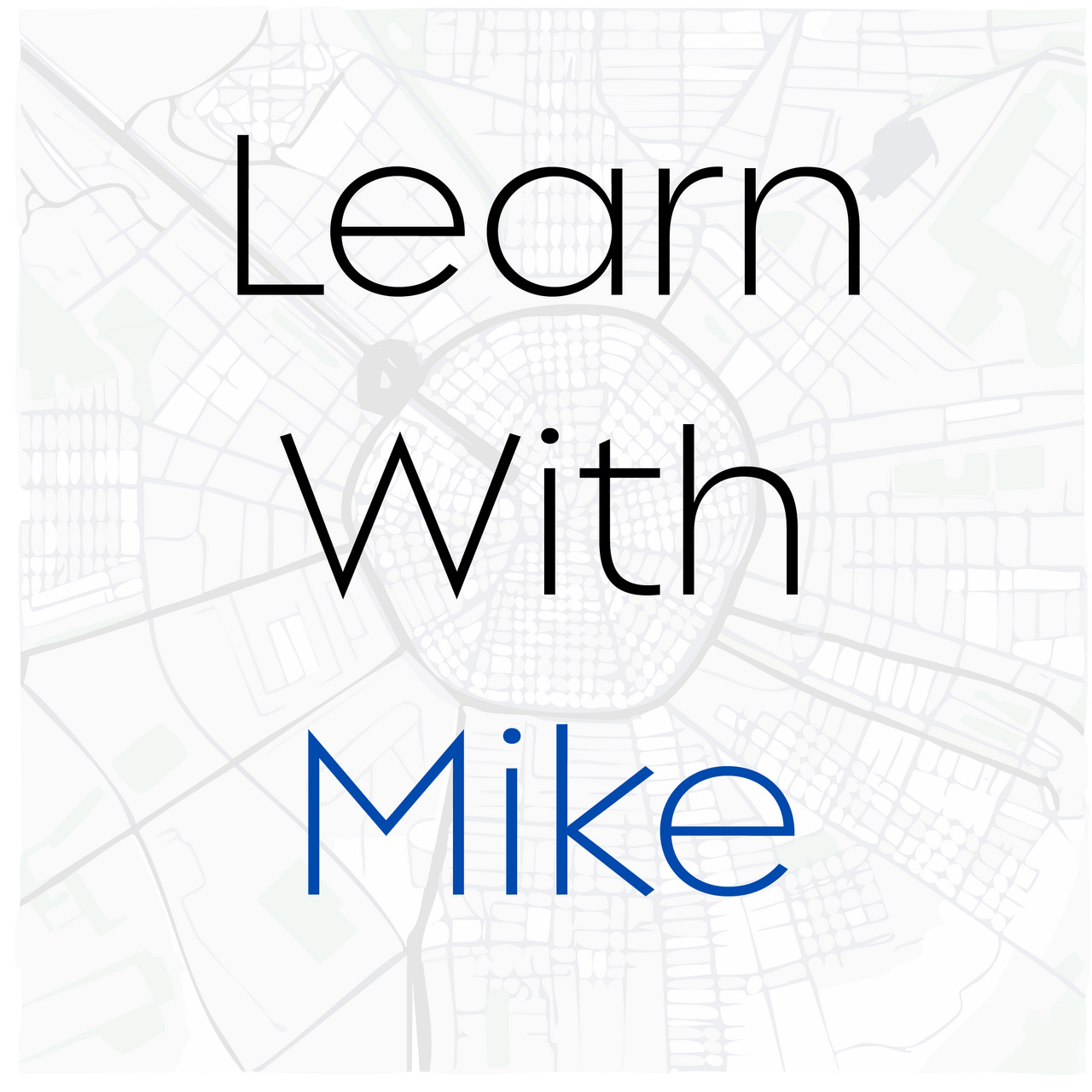Summer Break: Recharge Edition
Rest ≠ Recharge
Dear Reader,
If you’ve been following, you’ll know that I shared ideas about how to set aggressive goals for the summer, how to take on these few months with verve in order to set the stage for an even more powerful and action-packed season.
But, for the last four weeks I haven’t played percussion at all. After two weeks recovering from a surgery, I’ve been on a trip in Brittany (northern France). My diet: bread, cheese, butter, and an endless variety of strawberries. In fact, who needs Instagram when there’s a new summer strawberry dropping every day, each of which sends the French into a tizzy?
I’ve been enjoying being away from music making these weeks, recharging my battery with activities that titillate and inspire my mind. I’ve been off the grid musically, but not creatively. This time away has reminded me that there’s a difference between resting and recharging—and that distinction matters.
Rest ≠ Recharge
Rest is essential to peak performance. Taking practice breaks can help learn new material faster, sleeping more contributes to better retention, and the added steps of walking from a practice room to grab a coffee can be a real boon to physical health. And rest after a long semester or concert season is vital for avoiding long-term burnout.
But there’s a difference between rest and recharging. Rest is about recovering from stress. It gives our minds and bodies time to consolidate our knowledge.
Recharging is different. The mission of recharging is to clear the mind, gather energy, and begin the process of planting new ideas. It may include relaxing, but may not! Recharging occurs after one has sufficiently recovered from a period of great activity and their mind and body are ready for a new period of work. It’s the moment when your mind starts poking you again: what if I tried this? or I wonder what distinguishes French high-gothic arches from their Italianate contemporaries? It’s curiosity flickering back to life.
Active Recharging
For some, doing less is the pathway towards doing more later. Not for me. My idea of a good vacation or break is to always be doing something: always walking, always exploring. The notion of sitting on a beach when there is an art museum to be explored or a historical plaque to be read is ludicrous!
This week’s epiphany: maybe being on the move mentally and physically is not about running from some inner insecurity. Maybe it’s more about running towards my intuition that learning and doing are what help me stay healthy?
So I made a list of things that recharge my battery. Here are some:
Learning a new skill
Being physically active
Eating new and beloved foods
Spending a day in an art museum
Exploring a city on foot
Taking, not being in, photos
Looking at historical maps
I’ve lived like this for years: in fact, most of my Learn With Mike posts were instigated by a recharging trip (either physical or wikipedia-al).
Doing these (and other) activities not only give me more energy for my music-making, they give me ideas, inspiration, and context. I write often about how an essential element to learning music is to be interesting by interested in the world around us, particularly the cultural artifacts which add context to our art-making domains. My recharge list exposes me to people, places, and things (basically any noun) which do just that. I guarantee one’s understanding of Xenakis’ percussion works will be enhanced by exploring Xenakis’ Paris, particularly the ways in which the built environment around him changed in the 1970s and 1980s. And, trying a lot of varieties of cheese has got to hone one’s senses to allow for the kind of minute diagnostic abilities needed by elite musicians. Right? Anyone?
More importantly, these activities help me find balance. Musicians generally struggle with work-life balance, and for those with performing careers, balance tends to come in fits and starts, with weeks off amidst months without space for quotidian recharge sessions.
My intention on break was to lean into my favorite activities as musically positive, not part of a zero-sum game. I think it worked!
Some Mantras
That I’ve been living by these few weeks:
Thinking and planning takes time: make space for it if you want to take on big challenges.
Don’t hunt and peck: I’m trying to use my computer/devices once I already have something to say with them.
Be present: if I’m cheese and cider tasting (and I was), that’s what I’m doing and it’s ok not to be practicing.
Action Steps:
So, what relaxes you? What recharges you?
Can you do some of these every week? Every month?
At the end of your next project, what will you do to refill your tank?
More Resources:
Mike and I spent a LOT of time on our first episode. So much time that we didn’t release it…during the summer… I hope it’s valuable to you if you’re looking for broader tips about how to plan and execute a summer workation.
Coming soon: more tips for how to learn anything online, and some of my favorite cross-training exercises.







